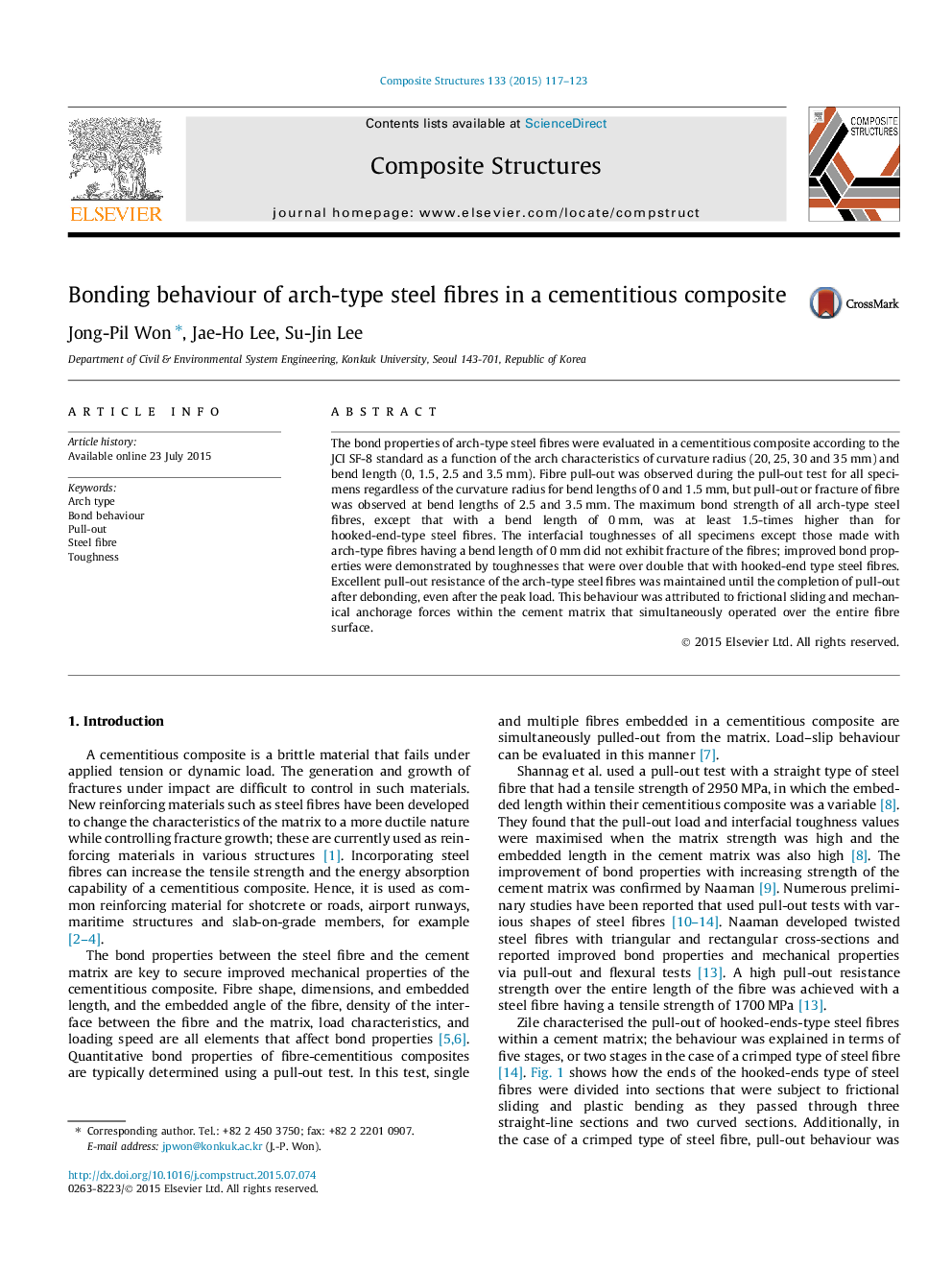| Article ID | Journal | Published Year | Pages | File Type |
|---|---|---|---|---|
| 6706490 | Composite Structures | 2015 | 7 Pages |
Abstract
The bond properties of arch-type steel fibres were evaluated in a cementitious composite according to the JCI SF-8 standard as a function of the arch characteristics of curvature radius (20, 25, 30 and 35Â mm) and bend length (0, 1.5, 2.5 and 3.5Â mm). Fibre pull-out was observed during the pull-out test for all specimens regardless of the curvature radius for bend lengths of 0 and 1.5Â mm, but pull-out or fracture of fibre was observed at bend lengths of 2.5 and 3.5Â mm. The maximum bond strength of all arch-type steel fibres, except that with a bend length of 0Â mm, was at least 1.5-times higher than for hooked-end-type steel fibres. The interfacial toughnesses of all specimens except those made with arch-type fibres having a bend length of 0Â mm did not exhibit fracture of the fibres; improved bond properties were demonstrated by toughnesses that were over double that with hooked-end type steel fibres. Excellent pull-out resistance of the arch-type steel fibres was maintained until the completion of pull-out after debonding, even after the peak load. This behaviour was attributed to frictional sliding and mechanical anchorage forces within the cement matrix that simultaneously operated over the entire fibre surface.
Related Topics
Physical Sciences and Engineering
Engineering
Civil and Structural Engineering
Authors
Jong-Pil Won, Jae-Ho Lee, Su-Jin Lee,
